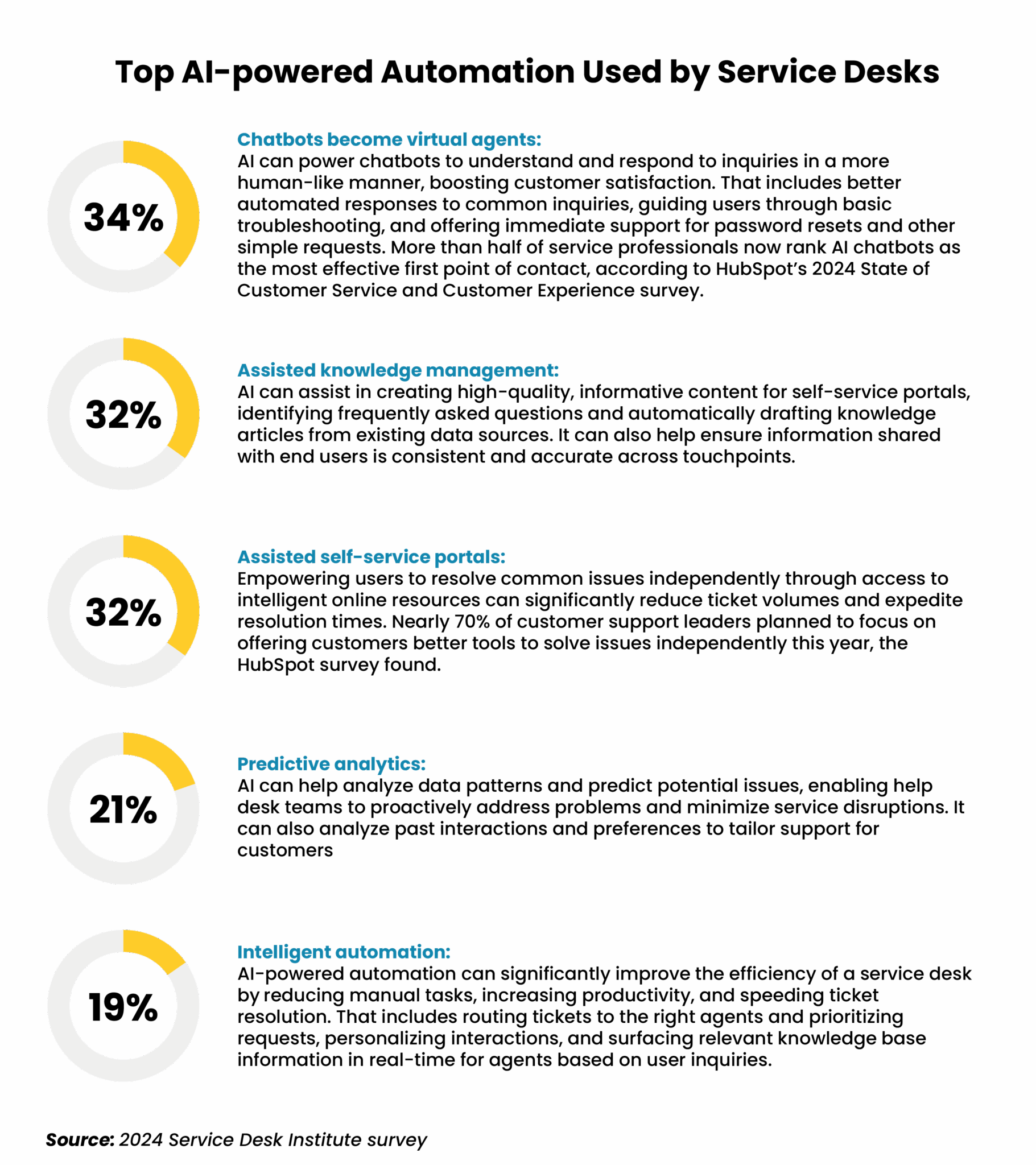In brief:
- Many restaurants struggle with effective POS and IT support – triggering costly downtime, lost sales, and frustrated customers.
- Well-run IT support for restaurants acts as a single point of contact for quickly resolving IT issues across locations – incorporating POS systems, network connectivity, third-party integrations, and more.
- To stay competitive, restaurants must evolve beyond reactive IT support to proactively anticipate issues before they disrupt operations.
- Success starts with a restaurant IT support partner experienced in supporting multi-location brands – offering smart strategies for stores with diverse tech environments and non-technical staff.
Restaurant industry challenges are intensifying. From rising food and labor costs to ongoing staffing shortages, shrinking margins, declining customer spending, and fierce competition, operators are leaning heavily on technology to stay ahead. But while the right tools can be a powerful business differentiator, poor restaurant IT support can just as quickly become a costly liability.
Many multi-location restaurant brands face persistent struggles with help desk support, POS system reliability, and broader IT infrastructure management. Coordinating operations like menu changes, third-party delivery integration, and network connectivity across locations with varying systems and staff capabilities is not for the faint of heart.
Add the pressure to scale efficiently, and the complexity multiplies.
When IT goes down, the impact can be severe. In February 2025, a major Square outage left many restaurants unable to process credit card payments during peak hours – forcing some to turn customers away and others to close for the day.
In a competitive environment where customer loyalty is hard-won and easily lost, even one bad experience can do lasting damage. According to a 2024 QSR magazine report, 51% of customers won’t return after a single poor interaction.
Below, we break down the most critical IT challenges facing multi-location restaurants – and how top-tier providers like Auxis are helping solve them with smarter, scalable restaurant IT support.
The critical role of IT in modern restaurants
In the fast-paced restaurant industry, technology is no longer a luxury – it’s an integral part of every successful operation. From managing food costs and labor costs to protecting sensitive customer data, IT solutions are at the heart of modern restaurant operations.
Kitchen display systems and advanced point of sale platforms help streamline processes, improve order accuracy, and enable real-time management of inventory and sales data. For restaurant brands, leveraging the right technology and ensuring reliable connectivity is essential to delivering a seamless customer experience, reducing operational costs, and driving revenue growth.
By investing in robust IT systems and solutions, restaurants can optimize their operations, safeguard sensitive data, and achieve their business goals in an increasingly competitive market.
Key challenges to providing IT services for restaurants
But as restaurants adopt more technology to streamline processes and meet customer expectations, the complexity of managing IT support has grown – bringing new challenges that can disrupt service, impact revenue, and overwhelm internal teams if not addressed effectively.
1. Rising costs and talent gaps strain IT support for restaurants
The severe tech talent shortage in recent years has left IT departments across industries stretched thin. Costs for hiring and training tech employees have risen as a direct consequence, with even large corporations finding it difficult to hire in-house resources in key areas like help desk support.
Help desk outsourcing can offer a cost-effective solution, but restaurants require more than general IT knowledge for success.
Restaurant brands need a service desk partner who understands the real-world complexities of supporting a multi-location business model. They must be equipped to manage the diverse technology environments across hundreds – or even thousands – of locations, where the end user is often a frontline worker with minimal technical training.
Effective restaurant IT support also requires real-time issue resolution and deep expertise in industry-specific systems like POS platforms.
Auxis brings nearly 30 years of experience delivering tailored IT solutions to multi-location enterprises. We help leading restaurant brands overcome talent shortages by providing instant access to high-quality, certified IT support from our Global Delivery Centers in Latin America – recognized as the #1 up-and-coming tech talent market by CBRE’s 2024 Scoring Tech Talent report.
In fact, Latin America currently delivers IT functions like service desk at twice the global rate (64% vs. 32%) – with LATAM’s satisfaction rates (87%) surpassing Asia (53%), Europe (64%), and even North America (69%), according to the 2024 State of the GBS & Outsourcing Industry in Latin America report by SSON and Auxis.
Our bilingual support agents bring more than technical know-how – they offer critical thinking, strong communication skills, time zone compatibility, and a deep understanding of restaurant operations to help you resolve issues faster and deliver seamless, consistent customer experiences. The Auxis team is collaborative, skilled, and dedicated to providing reliable support for your restaurant IT needs.
Our nearshore model also significantly improves IT costs for restaurants – with help desk outsourcing ranking #1 for reducing costs among IT functions. Besides labor arbitrage averaging 30-50%, nearshoring to Auxis further brings best practices and automation tools that lower costs for restaurant IT support by streamlining operations, boosting productivity, and giving in-house teams bandwidth to focus on higher-value activities.
2. POS system outages bring restaurant sales to a grinding halt
POS systems are the backbone of modern restaurant operations – handling payments, tracking sales transactions, controlling stock, performing inventory management, and more. But the average store experiences more than 80 hours of unplanned downtime every year, with 87% having to wait up to four hours for support (Digi Infographic: How to Eliminate Downtime).
That kind of delay carries a steep price, with POS outages in a single store costing approximately $855 per hour (Retail Touchpoints survey). Who can forget the infamous Starbucks outage that took down thousands of POS systems – costing the brand an estimated $3 million?
Preventing downtime starts with the right partner. Auxis delivers fast, expert support through 24/7 service desk coverage, prompt issue triaging, and remote troubleshooting – so restaurants avoid long wait times and keep business running smoothly.
Our Restaurant IT Support Services act as a single point of contact for all IT infrastructure issues across your stores, from POS reliability and network performance to integrations with online platforms.
Proactive monitoring devices installed at each location take our IT services for restaurants to the next level, enabling us to detect outages faster, quickly pinpoint the cause, and resolve issues sooner – minimizing business impact when every minute counts.

3. Poor POS administration hurts revenue
Restaurant brands frequently roll out promotions tied to seasonal events – like back-to-school, summer break, or holidays – where success depends on consistent POS execution across every location. But managing these campaigns, along with other critical administrative tasks like menu changes, requires advanced POS capabilities and expert support.
Finding skilled talent to handle this complexity – at the right cost – is increasingly difficult, and in many cases, simply not feasible in-house.
Partnering with a provider that offers the right technical expertise for advanced POS support is key to maintaining security, consistency, accuracy, and operational efficiency across your restaurant network. Improving POS support also directly enhances productivity for store staff, allowing them to focus on delivering excellent customer service and optimizing output instead of administrative tasks.
With deep experience supporting top restaurant brands, Auxis ensures smooth, centralized POS administration – so your customers enjoy a seamless experience at every location, and your business captures every sales opportunity.
4. IT services for restaurants can’t just put out fires – they must prevent them
IT failures pose serious financial risks for restaurant operators. The average data breach in the retail sector now costs $3.96 million – with the bulk of the price tag attributed to operational downtime and lost revenue, according to IBM’s 2024 Cost of a Data Breach Report.
But what if restaurants could anticipate outages – or better yet, prevent them from happening during peak business hours?
That’s where the right restaurant IT support partner can be a game-changer.
To stay competitive, brands must shift from reactive support to proactive IT management aimed at protecting restaurant operations, revenue, and reputation from potential threats and disruptions. This includes timely software updates, continuous system monitoring, and AI-powered automation aimed at identifying and catching problems before they trigger downtime.
Auxis takes this proactive approach even further. Our Store Health Check program includes bi-annual check-ins with each location to review support history, gather direct feedback, and assess operations – even when nothing seems wrong.
The result: higher satisfaction, reduced risk, and a better ability to identify and solve problems before they become business-impacting events.
5. Tedious restaurant IT support processes are costing restaurants – AI and automation are the answer
In today’s highly competitive restaurant environment, every minute of downtime costs money and customer trust. AI and automation are just as vital for optimizing back-of-house IT restaurant operations as they are for enhancing customer-facing experiences.
Service desks that incorporate AI-powered self-service portals and automated knowledge bases empower restaurant workers to quickly resolve common issues without opening tickets – accelerating resolution and reducing costs. Automation tools also boost productivity by streamlining repetitive tasks, allowing help desk agents to focus on the most critical requests.
Modern IT support for restaurants should leverage AI and automation to:
- Triage and prioritize incoming issues
- Accelerate response times
- Eliminate repetitive tasks
- Spot patterns and implement automations that resolve recurring problems without human intervention

Automation is central to Auxis’ restaurant IT support model. Our IT operations are backed by our award-winning intelligent automation practice – with credentials as a UiPath Americas Partner of the Year, Agentic Automation Fast Track Partner, and Platinum Partner underscoring our ability to place AI and automation at the heart of business innovation and strategy.
From chatbots and virtual agents to automated ticket creation and resolution, we deploy a suite of solutions that make your service desk smarter and faster. Learn how we helped a major QSR brand transform IT support across 4,000+ franchised locations – cutting resolution times, improving user experience, and reducing costs by 30%.
Combined with our one-of-a-kind virtual coaching and audit program that’s designed to help you maintain top-quality restaurant operations, Auxis delivers a comprehensive solution for restaurant brands that drives consistency, operational efficiency, and a seamless customer experience across all your stores.
Looking to improve restaurant IT support? Schedule a consultation with our Restaurant Services experts today! Or, visit our resource center to learn more restaurant industry strategies, tips, and success stories.
Frequently Asked Questions
What are the main IT challenges in the restaurant industry?
How can outsourcing restaurant IT support reduce downtime?
Why is specialized IT support important for restaurants?
How does effective store support impact guest experiences and satisfaction?
How do you measure the success of IT support for restaurants?
What is the future of restaurant IT support?




